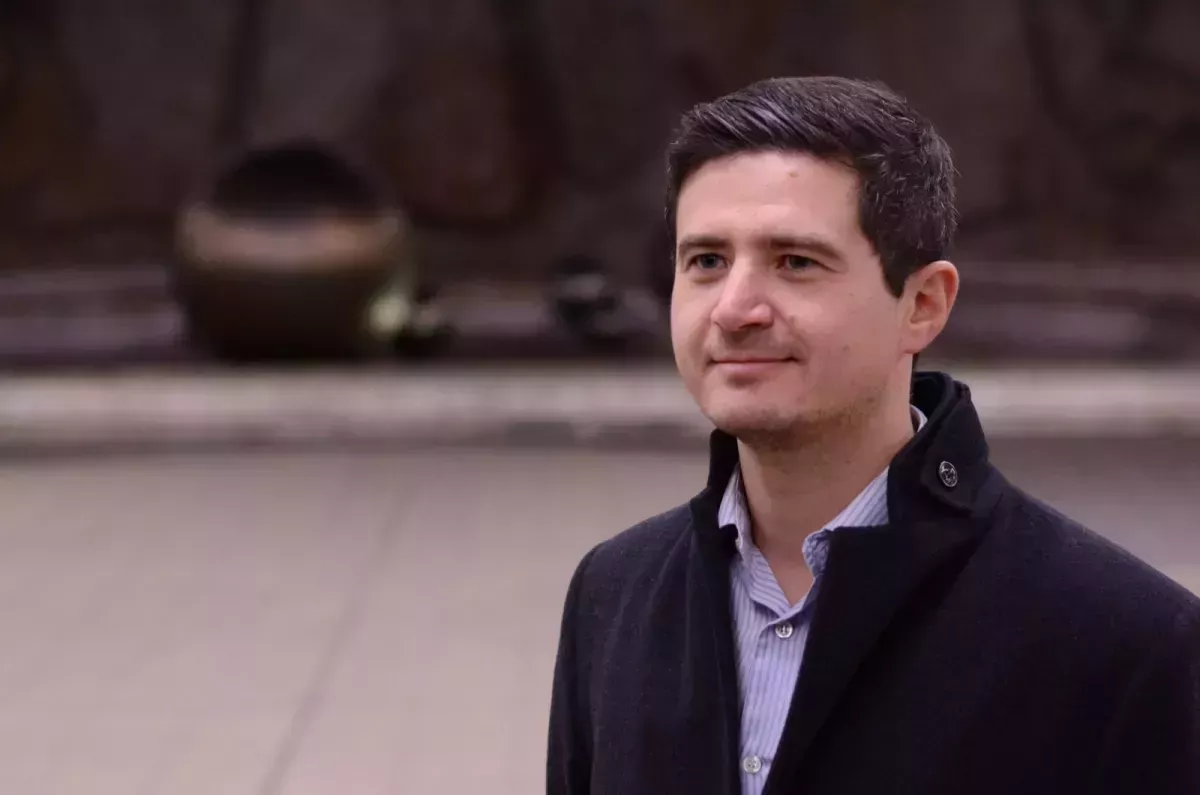Armenian path to Europe — through Moscow’s economic thorns Expert opinions on Caliber.Az
Russian Deputy Prime Minister Alexey Overchuk announced that Russia is preparing a formal letter to Armenia addressing the contradictions between Armenia’s regulations aimed at closer ties with the European Union and the rules of the Eurasian Economic Union (EAEU).
“We are observing the processes taking place within the framework of Armenia’s rapprochement with the European Union. We note that the regulatory framework of the Republic of Armenia is introducing legal acts that simplify certain certification rules,” he said, adding: “We will consider the question of applying appropriate measures.”
What recent actions by Armenia toward closer ties with the EU have pushed Russia to react so noticeably? How might Yerevan respond? Russian and Belarusian political analysts answer these questions for Caliber.Az.
Alexey Chernov, a Belarusian political analyst and chief expert at the Centre for Analytical Forecasting, believes that Moscow has consistently discussed this issue with Yerevan, repeatedly making clear what the consequences of further rapprochement with the EU might be.

“Moscow’s concerns and irritations have been accumulating for several years now, ever since Armenia began backing its anti-Russian stance with concrete actions. It all started with the arrival of a mission of European observers in the country and continued with arms purchases from France. However, Russia’s response was fairly restrained, since the decision to choose an arms market is the right of any country, even if it is a strategic partner of Russia.
For Armenia, which is a member of the Collective Security Treaty Organisation (CSTO), such actions may conflict with certain provisions of the organisation’s charter. However, some CSTO members sometimes acquire weapons from other countries — for example, Kazakhstan — so Moscow did not escalate this into an open conflict with Yerevan on this issue. But economic relations with Western countries are a completely different matter. In this regard, Russia intends to act more harshly to protect its interests and markets, primarily because the West is trying in every way to inflict maximum damage on Russia through economic sanctions. And the format of cooperation within the EAEU is a kind of economic ‘bulletproof vest’ against Western sanctions.
Perhaps the first sign for Moscow was the strategic partnership agreement with the United States, signed back in the Biden administration, under which Armenia assumed certain obligations to control ‘grey imports’ passing through its territory into Russia. The document seemed like a mere formality, but nevertheless, it became clear that Yerevan was ready to sacrifice its relations with Russia, to betray its closest partner, so to speak, and directly join the ‘Western sanctions club,’” the political analyst said.
According to him, Moscow politely urged Yerevan for a long time not to make abrupt moves and not to undermine the established economic ties with Russia, if only because this would primarily deal a devastating blow to Armenia itself.
“Pashinyan and members of his team in the winter and spring of this year promised not to ‘get carried away’ with their Western course and not to sign concrete documents on economic cooperation with the EU, limiting themselves to general statements rather than real actions. But it seems they did not keep their word. Incidentally, all these promises by the Armenian prime minister were also made partly out of fear over the decline in trade turnover between Armenia and Russia last year, which indicated that Moscow had already begun gradually diversifying its trade relations with this country. This fact was confirmed by Deputy Prime Minister Overchuk.
But Pashinyan’s love for complex schemes and his inherent political adventurism seem to have taken over. After the arrest of Russian businessman Karapetyan — owner of extensive business operations in Russia — as well as the statements about the nationalisation of the company ‘Electric Networks of Armenia,’ it became clear that Pashinyan does not want to play by the rules, but wants to impose his own rules on Moscow. However, he is greatly mistaken — Russia has many methods of exerting pressure on Armenia, both economically and through the customs duties and privileges within the EAEU, which can be revoked at any moment.
For the Armenian economy, this would practically mean collapse. Therefore, Russia, through Deputy Prime Minister Overchuk, is issuing a clear and firm warning explaining Russia’s position and setting specific conditions for Armenia: to revise its policy and action plan for establishing economic cooperation with the EU as soon as possible. Otherwise, Russian sanctions will come into force, which essentially means a review of the privileges and customs duties that Armenia enjoys within the EAEU and various allied agreements with Russia.
This includes gas tariffs, which would instantly skyrocket for Armenia, and most importantly — customs duties on Armenian goods entering Russia. Yerevan would immediately lose its market for its products because it would become unprofitable for Russian partners to purchase from Armenian entrepreneurs — prices would rise sharply. Trade turnover could collapse by several billion, and Armenia simply would not withstand such a blow. Hopefully, Pashinyan takes these risks into account,” concluded Chernov.

According to Russian political analyst and economist Renat Savin, many member countries of the Eurasian Economic Union (EAEU) are interested in how Armenia intends to continue playing on two fronts and even profitably supply European competitors’ goods to EAEU markets, thereby undermining the logic of the customs union and the very principles of the internal market.
“Pashinyan’s ‘virtuoso’ skill in sitting on two chairs has begun to threaten the fundamental principles of the EAEU charter’s functioning. Russia long gave him some leeway on these sensitive issues, but this can no longer continue. Yerevan’s unwillingness to follow the logical course of action and its crossing of red lines in relations with its EAEU partners is obvious. Here, Russia’s position was very consistently expressed by Alexey Overchuk.
According to him, the regulatory framework of the Republic of Armenia is introducing legal acts that simplify certain certification rules for food products from countries that are not members of the Eurasian Economic Union. This means that goods not meeting the organisation’s requirements could enter the EAEU internal market. Overchuk also added that Russia is bringing this issue to the Eurasian Economic Commission Council for consideration and will work on developing appropriate measures. This likely means that Yerevan will lose certain discounts and preferences for selling its products within the EAEU market.
The question is how Russia will start implementing this mechanism: gradually, trying to discipline Yerevan, or by delivering a ‘cold shower’ to the Armenian economy,” concluded Savin.








